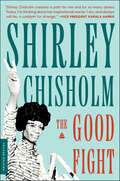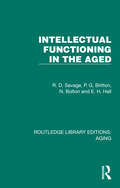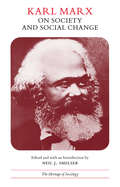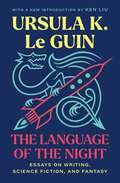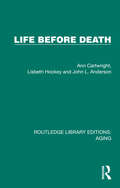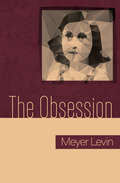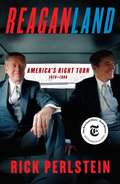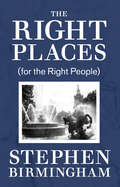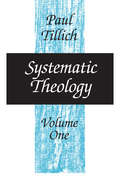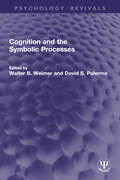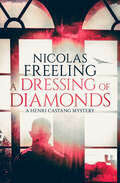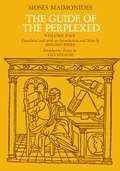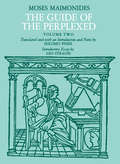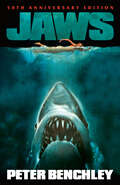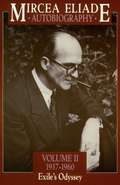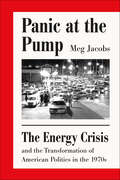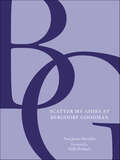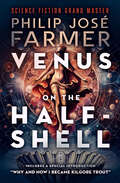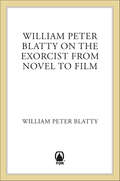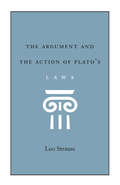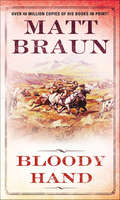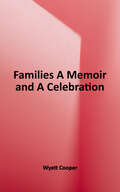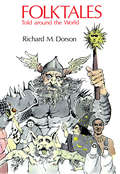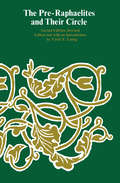- Table View
- List View
The Good Fight
by Shirley ChisholmThe revered civil rights activist and pioneering member of Congress chronicles her groundbreaking 1972 run for President as the first woman and person of color—a work of immense historical importance that both captures and transcends its times, newly reissued to commemorate the fiftieth anniversary of her campaign.“Shirley Chisholm's fearless determination has been an inspiration to so many of us.” —Regina KingBefore Kamala Harris, before Hillary Rodham Clinton there was Shirley Chisholm. In 1972, the Congresswoman from New York—the first Black woman elected to Congress—made history again when she announced her candidacy for President of the United States. Though she understood victory was a longshot, Chisholm chose to run “because someone had to do it first. . . . I ran because most people think the country is not ready for a black candidate, not ready for a woman candidate.” In this invaluable political memoir, Chisholm reflects on her unique campaign and a nation at the crossroads of change. With the striking candor and straightforward style for which she was famous, Chisholm reveals the essential wheeling and dealing inherent to campaigning, castigates the innate conservatism and piety of the Black majority of the period, decries identity politics that lead to destructive power struggles within a fractious Democratic Party, and offers prescient advice on the direction of Black politics. From the whirlwind of the primaries to the final dramatic maneuvering at the tumultuous 1972 Democratic National Convention, The Good Fight is an invaluable portrait of twentieth-century politics and a Democratic Party in flux.Most importantly, The Good Fight is the portrait of a reformer who dedicated her life to making politics work for all Americans. Chisholm saw her campaign as an extension of her political commitment; she ran as an idealist grounded in reality who used her opportunity and position to give voice to all the forgotten. This book bears the stamp of her remarkable personality and her commitment to speaking truth no matter the consequences.Look out for the biopic Shirley, directed by John Ridley and starring Regina King, coming in March 2024.
Intellectual Functioning in the Aged (Routledge Library Editions: Aging)
by R. D. Savage P. G. Britton N. Bolton E.H. HallBy the early 1970s the psychology of age had become an extremely important topic in the field. In the present book, originally published in 1973, the authors are particularly concerned with the subject of intellectual functioning. The assessment of intellect in the aged has many important theoretical and practical implications. At the same time, this work was of vital importance to the problems of medical illness in the aged, particularly with psychiatric and neurological diagnosis. Intellectual functioning is severely affected by psychiatric illness – but the intellectual difficulties associated with functional disorder in the aged may be quite different from those in the young. The cross-fertilization of psychiatric and psychological work on problems of the aged at the time left much to be desired. It was the hope of the present book to contribute towards a much firmer amalgamation of the two attitudes.The book would have been of general interest to psychologists interested in cognitive assessment, to those concerned with the developmental aspects of intellectual functioning and also to clinical psychologists and social welfare workers with particular responsibility for the aged. Today it can be read in its historical context.
Karl Marx on Society and Social Change (The Heritage of Sociology)
by Karl MarxThis volume presents those writings of Marx that best reveal his contribution to sociology, particularly to the theory of society and social change. The editor, Neil J. Smelser, has divided these selections into three topical sections and has also included works by Friedrich Engels. The first section, "The Structure of Society," contains Marx's writings on the material basis of classes, the basis of the state, and the basis of the family. Among the writings included in this section are Marx's well-known summary from the Preface of A Contribution to a Critique of Political Economy and his equally famous observations on the functional significance of religion in relation to politics. The second section is titled "The Sweep of Historical Change." The first selection here contains Marx's first statement of the main precapitalist forms of production. The second selection focuses on capitalism, its contradictions, and its impending destruction. Two brief final selections treat the nature of communism, particularly its freedom from the kinds of contradictions that have plagued all earlier forms of societies. The last section, "The Mechanisms of Change," reproduces several parts of Marx's analysis of the mechanisms by which contradictions develop in capitalism and generate group conflicts. Included is an analysis of competition and its effects on the various classes, a discussion of economic crises and their effects on workers, and Marx's presentation of the historical specifics of the class struggle. In his comprehensive Introduction to the selections, Professor Smelser provides a biography of Marx, indentifies the various intellectual traditions which formed the background for Marx's writings, and discusses the selections which follow. The editor describes Marx's conception of society as a social system, the differences between functionalism and Marx's theories, and the dynamics of economic and political change as analyzed by Marx.
The Language of the Night: Essays on Writing, Science Fiction, and Fantasy
by Ursula K. Le GuinFeaturing a new introduction by Ken Liu, this revised edition of Ursula K. Le Guin&’s first full-length collection of essays covers her background as a writer and educator, on fantasy and science fiction, on writing, and on the future of literary science fiction.&“We like to think we live in daylight, but half the world is always dark; and fantasy, like poetry, speaks the language of the night.&” —Ursula K. Le Guin Le Guin&’s sharp and witty voice is on full display in this collection of twenty-four essays, revised by the author a decade after its initial publication in 1979. The collection covers a wide range of topics and Le Guin&’s origins as a writer, her advocacy for science fiction and fantasy as mediums for true literary exploration, the writing of her own major works such as A Wizard of Earthsea and The Left Hand of Darkness, and her role as a public intellectual and educator. The book and each thematic section are brilliantly introduced and contextualized by Susan Wood, a professor at the University of British Columbia and a literary editor and feminist activist during the 1960s and &’70s. A fascinating, intimate look into the exceptional mind of Le Guin whose insights remain as relevant and resonant today as when they were first published.
Life Before Death (Routledge Library Editions: Aging)
by Ann Cartwright Lisbeth Hockey John L. AndersonSince death is an experience which will inevitably be common to us all, we are often surprisingly uninterested in what services are provided for those people, often the elderly and infirm, who are at risk or who are on the point of death. Originally published in 1973, this study describes the last twelve months in the lives of 785 adults. Based mainly on the reports of close relatives, it is concerned with the needs of the dying and the care they receive. This includes the more emotional aspects such as ‘awareness’ of dying and the effects of the death on relatives. The book looks at the part played by hospitals, general practitioners, local authority health and welfare services, and by relatives, friends and neighbours. The views of those who provide these services are also considered. The picture that emerges shows up the gaps in the care that was given to people in the final year of their lives at the time.
The Obsession
by Meyer LevinIn 1951, Meyer Levin’s wife gave him a copy of The Diary of a Young Girl by Anne Frank, which had just been published in France. Levin was already a successful writer in his mid-forties, searching for a way to bear witness to his experiences as a war correspondent in Europe. In Anne Frank’s diary, he found the voice he had been waiting for.The Obsession, widely regarded as one of Meyer Levin’s finest works, is a candid account of his struggle to bring his version of Anne Frank’s diary to Broadway. Levin’s adaptation, begun with the support of Anne’s father, Otto, was eventually deemed ‘unstageworthy,’ and he was supplanted by non-Jewish writers. To Levin, it was a clear case of sanitizing Anne’s story in favor of mass appeal. He battled for his version in courtrooms and out, but the fallout nearly destroyed both his family and his career.In recounting the mania that gripped him for twenty years, Levin spares neither himself nor others. Like all his best work, this extraordinary memoir encompasses larger themes—the nature of Jewishness, the price of assimilation, the writer’s obligation to himself and to his subject, and the search for identity and purpose.
Reaganland: America's Right Turn 1976-1980
by Rick PerlsteinA NEW YORK TIMES NOTABLE BOOK OF 2020 From the bestselling author of Nixonland and The Invisible Bridge comes the dramatic conclusion of how conservatism took control of American political power.Over two decades, Rick Perlstein has published three definitive works about the emerging dominance of conservatism in modern American politics. With the saga&’s final installment, he has delivered yet another stunning literary and historical achievement. In late 1976, Ronald Reagan was dismissed as a man without a political future: defeated in his nomination bid against a sitting president of his own party, blamed for President Gerald Ford&’s defeat, too old to make another run. His comeback was fueled by an extraordinary confluence: fundamentalist preachers and former segregationists reinventing themselves as militant crusaders against gay rights and feminism; business executives uniting against regulation in an era of economic decline; a cadre of secretive &“New Right&” organizers deploying state-of-the-art technology, bending political norms to the breaking point—and Reagan&’s own unbending optimism, his ability to convey unshakable confidence in America as the world&’s &“shining city on a hill.&” Meanwhile, a civil war broke out in the Democratic party. When President Jimmy Carter called Americans to a new ethic of austerity, Senator Ted Kennedy reacted with horror, challenging him for reelection. Carter&’s Oval Office tenure was further imperiled by the Iranian hostage crisis, the Soviet invasion of Afghanistan, near-catastrophe at a Pennsylvania nuclear plant, aviation accidents, serial killers on the loose, and endless gas lines. Backed by a reenergized conservative Republican base, Reagan ran on the campaign slogan &“Make America Great Again&”—and prevailed. Reaganland is the story of how that happened, tracing conservatives&’ cutthroat strategies to gain power and explaining why they endure four decades later.
The Right Places
by Stephen BirminghamThe acclaimed chronicler of America&’s upper classes reveals their preferred enclaves and secret hideaways across the country. Where are the &“Right Places,&” those exclusive locations where the privileged live and play? You may be in for a surprise. For as Stephen Birmingham shows, in the same witty, penetrating style that characterizes his other studies of the elite, the right places could be just about anywhere, from exclusive chalets in Sun Valley, Idaho, to the traditionally swank estates of Fairfield County, Connecticut, to the nascent avant-garde art scene in Kansas City, Missouri. Birmingham goes to great lengths to unveil these privileged locales: the secret hideaway of Maria Callas after Aristotle Onassis deserted her for Jacqueline Kennedy; Elizabeth Taylor&’s habits at home, including her favorite recipe for chili; and more. With colorful anecdotes and intimate details, Birmingham gives us a glimpse into the private worlds of the very rich.
Systematic Theology
by Paul TillichThis is the first part of Paul Tillich's three-volume Systematic Theology, one of the most profound statements of the Christian message ever composed and the summation and definitive presentation of the theology of the most influential and creative American theologian of the twentieth century. In this path-breaking volume Tillich presents the basic method and statement of his system—his famous "correlation" of man's deepest questions with theological answers. Here the focus is on the concepts of being and reason. Tillich shows how the quest for revelation is integral to reason itself. In the same way a description of the inner tensions of being leads to the recognition that the quest for God is implied in finite being. Here also Tillich defines his thought in relation to philosophy and the Bible and sets forth his famous doctrine of God as the "Ground of Being." Thus God is understood not as a being existing beside other beings, but as being-itself or the power of being in everything. God cannot be made into an object; religious knowledge is, therefore, necessarily symbolic.
Cognition and the Symbolic Processes (Psychology Revivals)
by David S. Palermo Walter B. WeimerOriginally published in 1974 and taking the revolution in psycholinguistics and cognitive psychology as a point of departure, this book summarizes the lessons learned from past attempts to construct a psychology of the higher mental processes. Even more importantly, it crystallizes specific directives and research proposals that show where cognitive psychology ought to go in the future. The relationship of learning theory, linguistics, and perception to the broad field of cognition and the nature of mind and knowledge are examined in detail. Today it can be read in its historical context.
A Dressing of Diamonds (The Henri Castang Mysteries)
by Nicolas FreelingUnorthodox French detective Henri Castang investigates a kidnapping in this police procedural from an Edgar award–winning British crime novelist.When the daughter of a prominent official goes missing, Inspector Henri Castang is certain the abduction is an act of revenge against the child’s mother. Not only is Collette Delavigne one of France’s youngest judges, but as a magistrate of crimes involving children, Delavigne has certainly aroused a few enemies. But how to find the perpetrator in a sea of cases that could easily have inspired a vengeful kidnapping? All Castang knows for sure is that he needs to act fast, in case the kidnapper has murder on his mind . . . Praise for Nicolas Freeling:“In depth of characterization, command of language and breadth of thought, Mr. Freeling has few peers when it comes to the international policier.” —The New York Times“Nicolas Freeling . . . liberated the detective story from page-turning puzzler into a critique of society and an investigation of character.” —The Daily Telegraph“Freeling rewards with his oblique, subtly comic style.” —Publishers Weekly“Freeling writes like no one. . . . He is one of the most literate and idiosyncratic of crime writers.” —Los Angeles Times
The Guide of the Perplexed, Volume 1
by Moses MaimonidesThis monument of rabbinical exegesis written at the end of the twelfth century has exerted an immense and continuing influence upon Jewish thought. Its aim is to liberate people from the tormenting perplexities arising from their understanding of the Bible according only to its literal meaning. This edition contains extensive introductions by Shlomo Pines and Leo Strauss, a leading authority on Maimonides.
The Guide of the Perplexed, Volume 2
by Moses MaimonidesThis monument of rabbinical exegesis written at the end of the twelfth century has exerted an immense and continuing influence upon Jewish thought. Its aim is to liberate people from the tormenting perplexities arising from their understanding of the Bible according only to its literal meaning. This edition contains extensive introductions by Shlomo Pines and Leo Strauss, a leading authority on Maimonides.
Jaws: A Novel (Shooting Script Ser.)
by Peter BenchleyNEW YORK TIMES BESTSELLER • The shark-versus-man classic that inspired the blockbuster Steven Spielberg movie—now in a fiftieth anniversary edition with an exclusive foreword from the author&’s wife, renowned ocean conservation advocate Wendy Benchley&“A tightly written, tautly paced study of terror.&”—The Washington PostA great white shark terrorizes the beautiful summer getaway of Amity Island, and a motley group of men take to the water to do battle with the beast. A heart-pounding novel of suspense and a brilliant meditation on the nature of humanity, Jaws is one of the most iconic thrillers ever written. In addition to Wendy Benchley&’s foreword, this edition features bonus content from Peter Benchley&’s archives, including the manuscript&’s original typed title page, a brainstorming list of possible titles, a letter from Benchley to film producer David Brown with candid feedback on the movie adaptation, and excerpts from Benchley&’s book Shark Trouble, highlighting his firsthand account of writing Jaws, selling it to Universal Studios, and working with Steven Spielberg.After writing Jaws in the early 1970s, Peter Benchley was actively engaged with scientists and filmmakers, and over the ensuing decades, joined many expeditions around the world as they expanded their knowledge of sharks and shark behavior. He encouraged each new generation of Jaws fans to enjoy his riveting tale and to channel their excitement into support and protection of these magnificent prehistoric apex predators.
Mircea Eliade: Exile's Odyssey, 1937–1960
by Mircea Eliade"Here finally are Eliade's memoirs of the first thirty years of his life in Mac Linscott Rickett's crisp and lucid English translation. They present a fascinating account of the early development of a Renaissance talent, expressed in everything from daily and periodical journalism, realistic and fantastic fiction, and general nonfiction works to distinguished contributions to the history of religions. Autobiography follows an apparently amazingly candid report of this remarkable man's progression from a mischievous street urchin and literary prodigy, through his various love affairs, a decisive and traumatic Indian sojourn, and active, brilliant participation in pre-World War II Romanian cultural life."—Seymour Cain, Religious Studies Review
The October Plot
by Clive Egleton1944: the 20th July Plot to assassinate Adolf Hitler has failed, but Operation Leopard which aims to kill Deputy Führer Martin Bormann, might just succeed, leading to a collapse of the German Home Front and an early end to the war. A motley commando force of British and Germans is assembled and trained in England then infiltrated into Germany to link up with the anti-Nazi underground. Unknown to them, their mission is being compromised by a devious Gestapo officer in Berlin and betrayed by one of their own side in London.
Panic at the Pump: The Energy Crisis and the Transformation of American Politics in the 1970s
by Meg JacobsAn authoritative history of the energy crises of the 1970s and the world they wroughtIn 1973, the Arab OPEC cartel banned the export of oil to the United States, sending prices and tempers rising across the country. Dark Christmas trees, lowered thermostats, empty gas tanks, and the new fifty-five-mile-per-hour speed limit all suggested that America was a nation in decline. “Don’t be fuelish” became the national motto. Though the embargo would end the following year, it introduced a new kind of insecurity into American life—an insecurity that would only intensify when the Iranian Revolution led to new shortages at the end of the decade.As Meg Jacobs shows, the oil crisis had a decisive impact on American politics. If Vietnam and Watergate taught us that our government lied, the energy crisis taught us that our government didn’t work. Presidents Nixon, Ford, and Carter promoted ambitious energy policies that were meant to rally the nation and end its dependence on foreign oil, but their efforts came to naught. The Democratic Party was divided, with older New Deal liberals who prized access to affordable energy squaring off against young environmentalists who pushed for conservation. Meanwhile, conservative Republicans argued that there would be no shortages at all if the government got out of the way and let the market work. The result was a political stalemate and panic across the country: miles-long gas lines, Big Oil conspiracy theories, even violent strikes by truckers.Jacobs concludes that the energy crisis of the 1970s became, for many Americans, an object lesson in the limitations of governmental power. Washington proved unable to design an effective national energy policy, and the result was a mounting skepticism about government intervention that set the stage for the rise of Reaganism. She offers lively portraits of key figures, from Nixon and Carter to the zealous energy czar William Simon and the young Donald Rumsfeld and Dick Cheney. Jacobs’s absorbing chronicle ends with the 1991 Gulf War, when President George H. W. Bush sent troops to protect the free flow of oil in the Persian Gulf. It was a failure of domestic policy at home that helped precipitate military action abroad. As we face the repercussions of a changing climate, a volatile oil market, and continued turmoil in the Middle East, Panic at the Pump is a necessary and lively account of a formative period in American political history.
Scatter My Ashes at Bergdorf Goodman
by Bergdorf Goodman Sara James MnookinA gorgeously illustrated companion to the fashion documentary of the same name, Scatter My Ashes at Bergdorf Goodman is an unforgettable collection of anecdotes, from the hilarious to the poignant, in commemoration of the internationally renowned luxury specialty store’s 111th anniversary. With delightful remembrances from celebrities, designers, and highly regarded fashion insiders—from Manolo Blahnik, Marc Jacobs, and Vera Wang to Joan Rivers, Susan Lucci, and Ashley and Mary-Kate Olsen—Scatter My Ashes at Bergdorf Goodman also features a foreword by fashion writer Holly Brubach, as well as art and photography from major advertising campaigns and original vintage sketches created by Bergdorf at the collection presentations of designers such as Lanvin, Chanel, and Balenciaga. This is an essential book for anyone who loves fashion, the thrill of a sumptuous shopping experience, and wonderful stories told by and about the famous.
Venus on the Half-Shell
by Philip José FarmerDisaster sends a man across the universe in search of answers to life&’s big questions in this humorous classic adventure by a Science Fiction Grand Master. When a massive flood wipes out Earth and spoils his date, lone survivor Simon Wagstaff finds refuge in an abandoned Chinese spaceship, the Hwang Ho. Accompanied by three new companions—a dog, an owl, and a beautiful robot—and his electric banjo, Wagstaff sets off on an extraterrestrial adventure. He travels from planet to planet, seeking the definitive answer to the ultimate question: Why are we created if only to suffer and die? Of course, after he drinks an elixir granting him eternal life, the real question is what to do for the rest of eternity after he answers his first question . . . &“Lively and inventive and goes by faster than a holiday weekend.&” —The Washington Post &“A comedy of sexual mores, an investigative search for Love, a lampoon of people who require answers to imponderable questions.&” —Science Fiction Review&“Not only a science-fiction epic of the most incredible proportions, but it is also a satiric-fantasy, a clever parody of its own genre.&” —The Daily Eastern News
William Peter Blatty on The Exorcist from Novel to Film: From Novel To Screen
by William Peter BlattyIn William Peter Blatty on The Exorcist: From Novel to Film, the New York Times bestselling author reveals the real-life incidents that inspired his famous novel and how it evolved into the groundbreaking Academy Award-winning screenplay of the 1973 groundbreaking William Friedkin film.Featuring the original, controversial ending of the novel, and both the first draft of the screenplay and the shooting script, Blatty presents his behind-the-scenes commentary on the differences between the book and screenplays, detailing the specific reasons why the changes were made for the final cut. This is the true story of the making of The Exorcist, an insider's guide to Hollywood in one of its most creative eras. Includes photographsAt the Publisher's request, this title is being sold without Digital Rights Management Software (DRM) applied.
The Argument and the Action of Plato's Laws
by Leo StraussThe posthumous publication of The Argument and the Action of Plato's "Laws" was compiled shortly before the death of Leo Strauss in 1973. Strauss offers an insightful and instructive reading through careful probing of Plato's classic text. "Strauss's The Argument and the Action of Plato's 'Laws' reflects his interest in political thought, his dogged method of following the argument of the Laws step by step, and his vigorous defense of this dialogue's integrity in respect to the ideals of the Republic."—Cross Currents "The unique characteristics of this commentary on the Laws reflect the care and precision which were the marks of Professor Strauss's efforts to understand the complex thoughts of other men."—Allan D. Nelson, Canadian Journal of Political Science "Thorough and provocative, an important addition to Plato scholarship."—Library Journal "The major purpose of the commentary is to provide a reading of the dialogue which displays its structural arrangement and the continuity of the argument."—J. W. Dy, Bibliographical Bulletin of Philosophy "The reader of Strauss's book is indeed guided closely through the whole text."— M. J. Silverthorne, The Humanities Association Review Leo Strauss (1899-1973) was the Robert Maynard Hutchins Distinguished Service Professor Emeritus of political science at the University of Chicago.
Bloody Hand
by Matt BraunBloody HandMatt BraunHe found a people who needed his courage…Born a slave, Jim Beckwirth forged his own path to freedom as a mountain man. But when a wealthy trading company owner offered to pay him to live among the Crow Indians, Beckwirth accepted the deal—and discovered another way of life that changed him forever.He fought a battle that had to be won…Here in the Wind River Mountains, amidst blood feuds and blood brothers, he became Bloody Hand, a man sworn to take a hundred scalps—and destined to become the People's greatest warrior—in a life-or-death struggle that shaped the fate of a nation.
Families: A Memoir and a Celebration
by Wyatt CooperPersonal experiences are recounted in a celebration of the family which illuminates the significance of blood relationships.
Folktales Told Around the World
by Richard M. DorsonAll the selections in Richard M. Dorson's Folktales Told around the World were recorded by expert collectors, and the majority of them are published here for the first time. The tales presented are told in Africa, Asia, the Middle East, Europe, North and South America, and Oceania. Unlike other collections derived in large part from literary texts, this volume meets the criteria of professional folklorists in assembling only authentic examples of folktales as they were orally told. Background information, notes on the narrators, and scholarly commentaries are provided to establish the folkloric character of the tales.
The Pre-Raphaelites and Their Circle
by Cecil Y. LangThis useful volume presents the major works of the five leading Pre-Raphaelite poets. Foremost in the collection, and included in their entirety are D. G. Rossetti's The House of Life, C. G. Rossetti's "Monna Innominata," William Morris's "Defence of Guenevere," Swinburne's Atalanta in Calydon, and Meredith's "Modern Love." Complementing these major poems is a fine, generous selection of the poets' shorter pieces that are typical of their work as a whole. For this second edition, Cecil Lang has substituted two early Swinburne poems, "The Leper" and "Anactoria," for Fitzgerald's The Rubáiyát of Omar Khayyám. These poems, which the editor describes as "shocking," show a new aspect of Swinburne not discussed previously. Lang's Introduction describes briefly the founding of the Pre-Raphaelite Brotherhood, discusses each of the Pre-Raphaelite poets, both individually and in relation to the others, and grapples with the questions of definition of Pre-Raphaelitism and the similarities between its painting and poetry. The book is appropriately illustrated with thirty-two works by D. G. Rossetti, John Ruskin, William H. Hunt, and other Pre-Raphaelite artists. This is the only anthology available that provides a representative selection of the work of these important poets. It will be indispensable to students of Victorian poetry and appreciated by readers interested in the Pre-Raphaelites.
